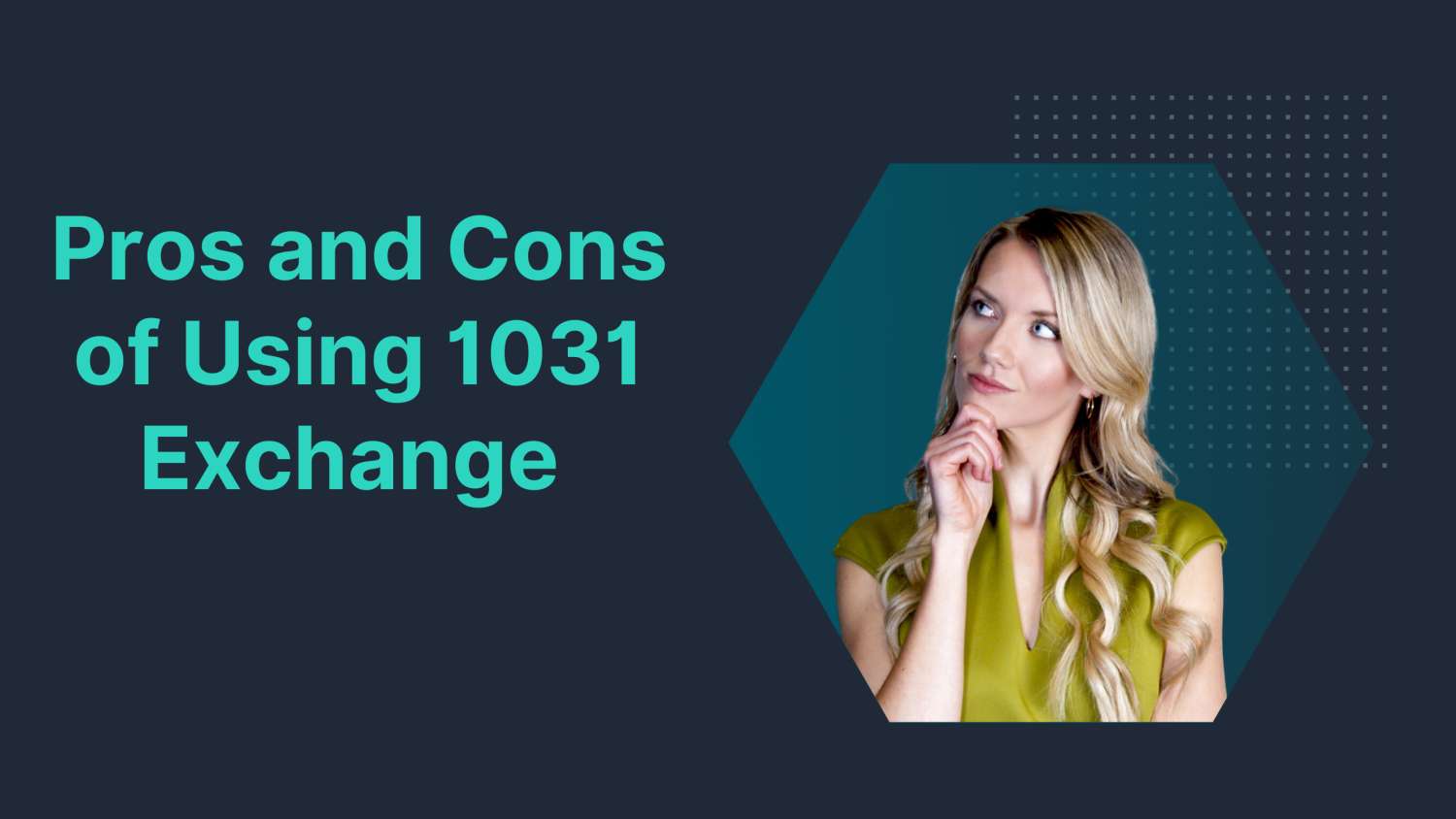Pros and Cons of 1031 Exchanges
As a real estate investor looking to sell a property, navigating complicated tax law is unfortunately a part of the gig. It’s important to not only know what relevant taxes you must pay to remain compliant, but also which methods and loopholes you can take advantage of to maximize your portfolio’s success. One of these […]

As a real estate investor looking to sell a property, navigating complicated tax law is unfortunately a part of the gig. It’s important to not only know what relevant taxes you must pay to remain compliant, but also which methods and loopholes you can take advantage of to maximize your portfolio’s success.
One of these methods is called a 1031 exchange, or like-kind exchange. Typically, the federal government collects anywhere from 15% to 20% on each property sale in capital gains tax. However, using a 1031 exchange, you can swap your old property for another one of similar function without having to pay that tax.
You can conduct as many 1031 exchanges as you’d like. Technically, you could roll over the capital gains tax until your very last property, in which you’d pay tax on your long-term capital gains one time.
However, the properties you’re exchanging must be similar in general nature. For example, a personal residence would be swapped for a personal residence, a vacation home for a vacation home, etc.
You also must have a qualified intermediary (QI) to facilitate the exchange. They will keep your capital gains in an escrow account that you may not access except to purchase the second property.
In this article, we’ll discuss some of the pros and cons of 1031 exchanges to help you decide if this strategy is for you.
Pros of 1031 Exchanges
There are many 1031 exchange benefits. If you’re asking, “Why do a 1031 exchange in the first place?”, here are some advantages to keep in mind.
Defer Capital Gains Tax
As mentioned previously, deferring your obligation to pay capital gains tax is the primary advantage to utilizing this method. You will still have to pay this amount eventually, but being able to postpone it is a great way to maximize your profits and enhance your real estate portfolio.
Diversify Your Portfolio
Using a 1031 exchange can give you the opportunity to explore alternate types of real estate, or maybe look into a new market. Being able to revitalize your portfolio is a great way to keep yourself sharp and to sharpen your skillset.
A Third-Party Will Mediate the Sale
Sometimes, allowing yourself to sit back and let someone else do the work is best. When you choose to conduct a 1031 exchange, a Qualified Intermediary (QI) handles the asset documentation, filing duties, and communication with the title company. A QI’s responsibility is to facilitate the sale within legal parameters, so allowing them to do so is a good way to lessen your workload while ensuring you’re staying within the confines of the law.
Potential Cons
As with anything, you must consider the potential cons to your decision before going through with it. Here are some risks that come with conducting a 1031 exchange.
Some Taxes May Still Apply
It’s possible that if your new mortgage is lower than the old one, you could be taxed on the difference. Also, if the exchange is unsuccessful or you conduct more than one over time, you will get taxed on the property sale.
Does 1031 exchange avoid state taxes? The answer is, sometimes. In most states, you avoid state tax as you would avoid federal tax in a 1031 exchange. However, there are exceptions to this rule. Additionally, if you conduct an exchange in a deferral state but then sell it later in a taxable state, it’s possible that one or both of the states could collect on the sale. Be sure to remain up to date regarding this issue and check with your state law code to see how it regulates 1031 exchanges.
More Scrutiny
The IRS tends to take more interest in 1031 exchanges, so it’s important that you stay vigilant about following tax law while conducting them. Also, since these exchanges are strictly regulated by the IRS, there are tight deadlines regarding closing the property and finding a new one. They require more complex tax documentation as well, which leaves room for potential errors that could result in penalties.
It’s always a good idea to consult with a professional when you’re in doubt regarding real estate investment taxes.
Conclusion
If you want to reinvest in your portfolio, deferring taxes by participating in 1031 exchanges is a great way to do so. However, the only way this method will benefit you is if you do your research and have a qualified intermediary guide you through the process.
